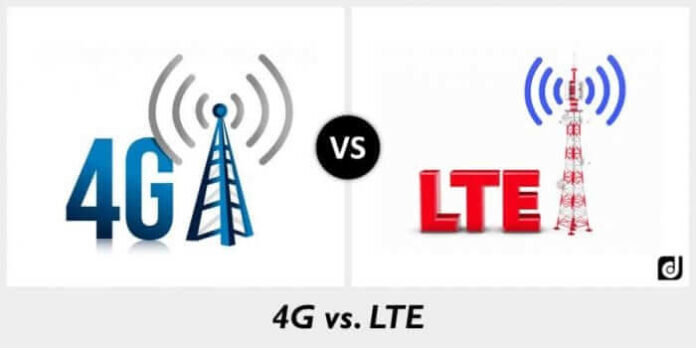Have you been wondering what are the differences between LTE and 4G? Do LTE and 4G mean the same thing? We will find out in this LTE Vs 4G article here.
Are you looking to buy a new smartphone and you find that there are way too many acronyms in the phone’s specs to wrap your head around? There is CDMA, GSM, LTE, and WiMAX … and the list goes on and on.
In this write-up, we’re going to showing you the differences between 4G and LTE, and which is better.
The modest clarification is that the “G” in 4G stands for “generation”, because 4G is the fourth-generation of mobile data technology, as defined by the radio sector of the ITU-R (International Telecommunication Union). The LTE stands for “Long-term Evolution” which usually applies to the idea of improving wireless broadband speeds to meet increasing demand.
LTE vs 4G
What is 4G?
The International Telecommunication Union (ITU-R) set standards for 4G connectivity in March 2008, calling for all services described as 4G to follow to a range of speed and connection standards.
For device use, including tablets and smartphones, connection speeds need to have a peak of at least 100MB/s, and for more stationary uses such as device hot spots, at least 1GB/s.
What is LTE?
The Long Term Evolution (LTE) is not to a great extent a technology as it is the path followed to attain 4G speeds. As it is, most time when your phone shows the “4G” icon in the upper right corner, it does not really mean it. When the International Telecommunication Union (ITU-R) set the minimum speeds for 4G, they were a bit unreachable, despite the amount of money tech producers placed into attaining them. The regulating body decided that LTE, the label given to the technology used in quest of those standards could be regarded as “4G” if it provides an ample improvement over the 3G technology.
You may also likely come across Long-term Evolution Advanced (LTE-A) at some point. It takes us nearer to proper 4G and It tenders faster speeds and greater stability than the usual LTE. It is also backwards compatible and works by aggregating channels, so as a substitute of connecting to the most solid signal in your district, you can download data from multiple sources at a time.
Speed
Hence, the actual question is, is there really any distinction between LTE and 4G networks? Do you notice that the speed of loading a page or of downloading an application on your smartphone is much faster if you have LTE technology built in? Maybe not, unless you are resident in a city. Although the difference that exists between slower 3G networks and new 4G or LTE networks is quite apparent, most of the 4G and “true 4G” networks have upload and download speeds that are nearly indistinguishable. LTE-A roll-out is starting to make some difference; however, your range may differ.
As of now, LTE-A remains the fastest connection available for wireless networks.
Image Credit: WhichVoIP
